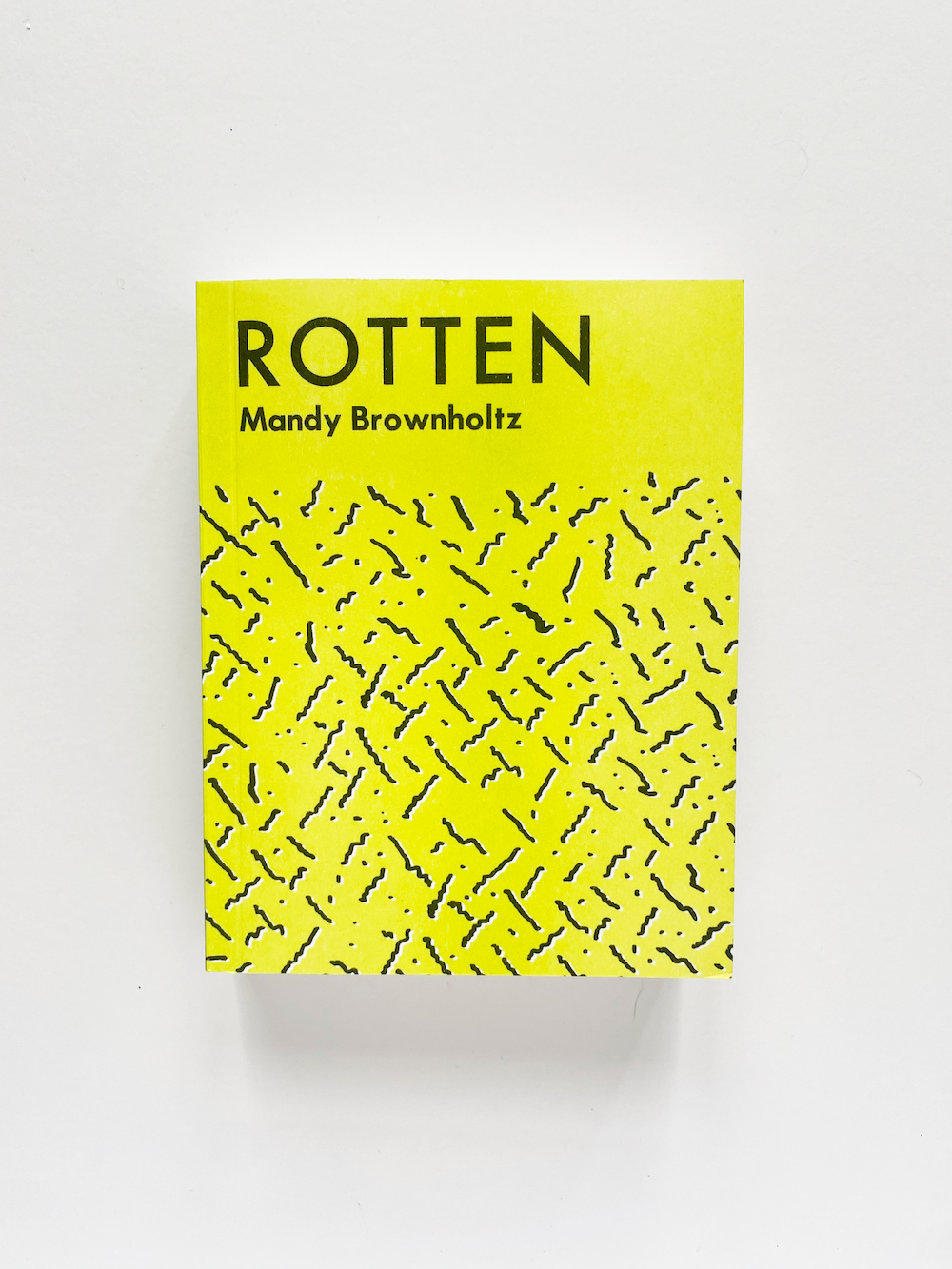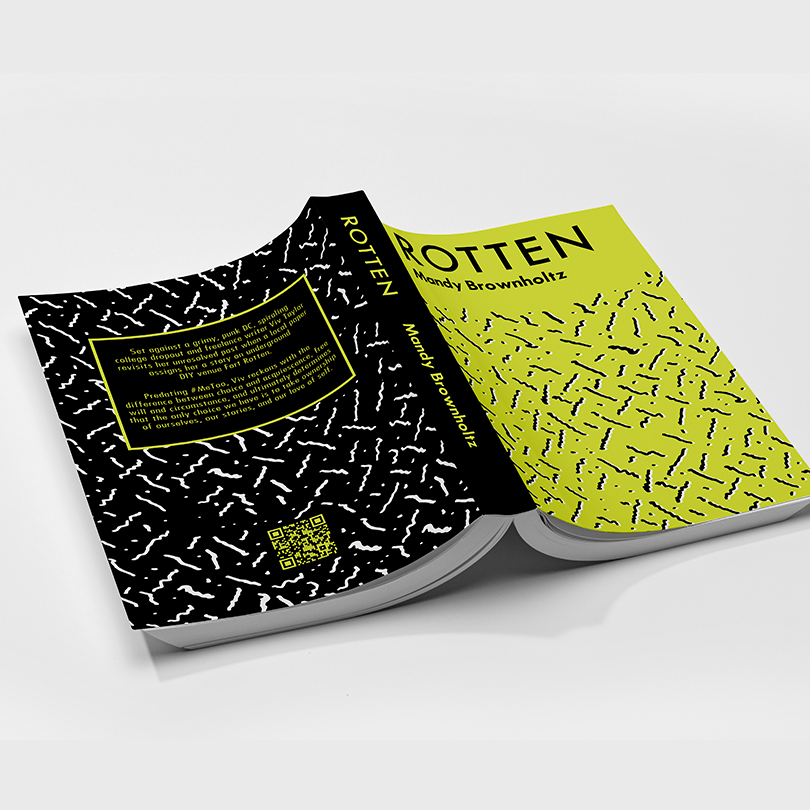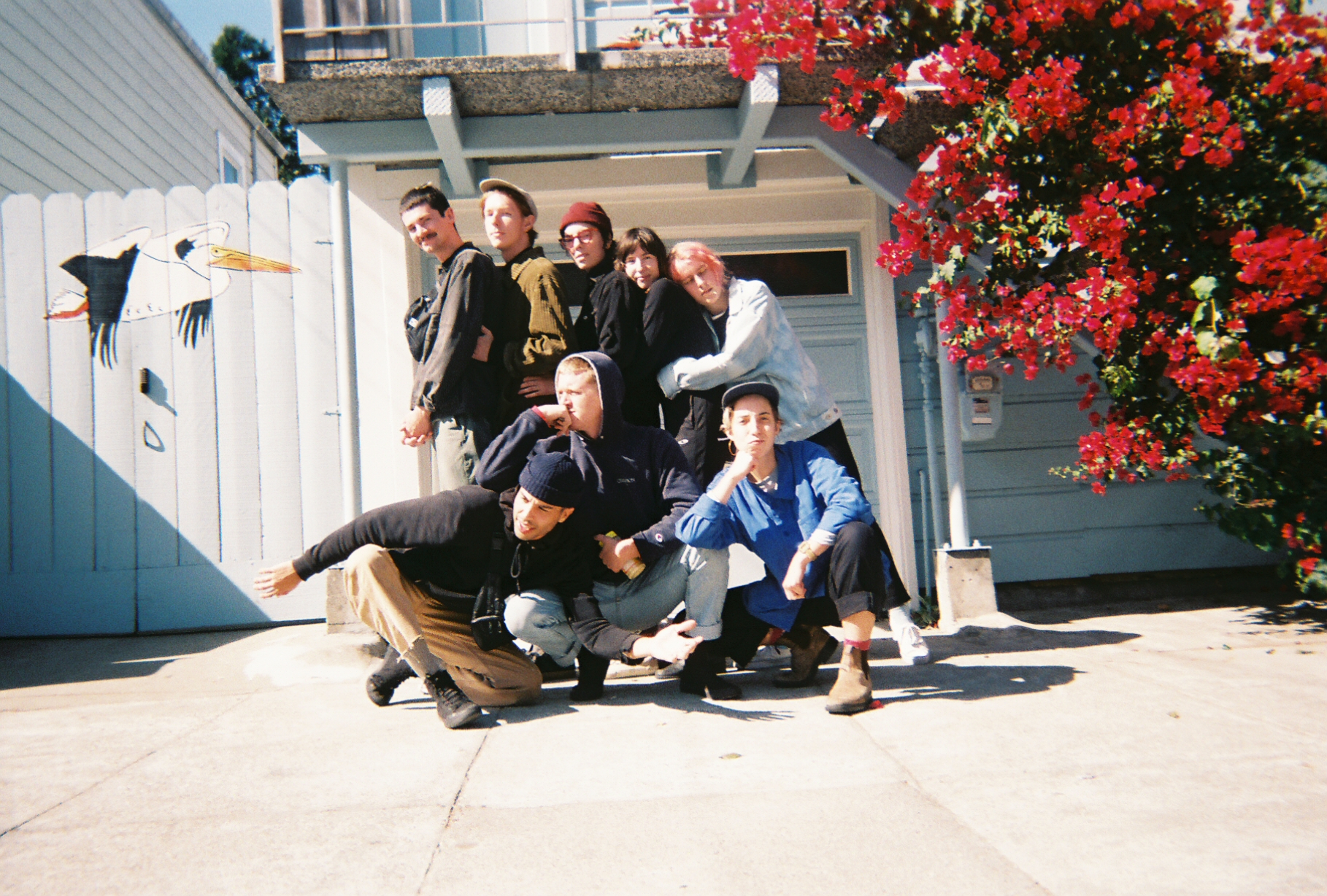Note: This article refers to sexual violence.
There’s an unspoken truth in our culture that if women want to be believed about sexual assault and harassment, then they must be without fault. Belief comes with a set of criteria that most survivors would fall short of: you have to be sober, you have to be wearing the “right” thing, you can’t be a sex worker, you can’t change your mind…the list goes on. This “perfect victim” narrative goes hand-in-hand with the idea that sexual assault is rare and aberrant.
“When people talk about sexual assault, the narrative is always some nice lady that’s walking to her car in the parking garage, and some creep jumps out from behind a car and attacks her, and usually, that’s not what happens,” Mandy Brownholtz, veteran music industry professional and author of Rotten tells me. Mandy’s debut novel doesn’t care for simplistic narratives, instead offering its readers a depiction of sexual assault and survivorship that is more complicated (and realistic).
Rotten follows journalist Viv Taylor as she deals with the aftermath of her rape and investigates the venue, Fort Rotten, where it took place. As Viv revisits the memories and people surrounding Fort Rotten, she realizes that her experience wasn’t the result of “one bad apple” and is instead indicative of the local DIY scene’s toxic culture. But as she reckons with the past, Viv struggles to deal with the trauma of being sexually assaulted and the shame she feels around not being the “perfect victim.”
As a protagonist, Viv isn’t really likable: she’s withholding, paranoid, and self-centered. Her story isn’t easily digestible either, and she worries that her actions after her assault will undermine her. Mandy tells me this was by design: “It was important to me that Viv was flawed and made bad choices sometimes because it didn’t make what happened to her any less wrong.” More than a novel about sexual assault, Rotten is a story about Viv’s personal journey towards this realization. Ahead of Rotten’s release, I caught up with Mandy to talk about free will, consent, and what radical self-love really means.
Rotten was independently released today. Order a copy of the book here.
Slumber: You open with a quote from Faulkner’s Light in August; why did you decide to open with that quote specifically?
Mandy: I almost named this book The More Than Behest, and I’m glad I didn’t because Rotten rolls of the tongue about more. But behest means an order or command. “I’m not a man of God, not of my own choice.” The way that I am is a result of what other people have done to me, and how I relate to other people. The book itself is so much about who we are and how the choices that we’re able to make are kind of out of our control.
I read Light of August in 2019 or 2018 and it was one of those books where I was like, “Oh, this is kind of what I’m trying to say.” I interviewed Ottessa Moshfegh for Audiofemme and she said she didn’t read novels when she’s writing because she didn’t want other work to affect her work. But I feel the opposite; I intentionally read things while I was writing because I wanted to see how the greats handled the same themes I wanted to deal with. Faulkner in particular often deals with unreliable narrators and kind of how memory is faulty. Then I read The Virgin Suicides again because I wanted to see how Jeffrey Eugenides wrote about memory.
“I want other people who have experienced this to realize that it's okay to not be perfect and that bad choices don't take away from your story. ”
Slumber: I’m actually glad you brought up that Ottessa interview; in that interview you asked her whether or not she’s concerned about what readers might think about her as a result of her own writing. Was this a concern you had about your own debut?
Mandy: I would say so. I promote other people’s art and music and this is the first time I’ve ever shared anything I’ve created. I don’t want people to think this book is semi-autobiographical in any way; it’s not. It’s just very personal to share something that you’ve created. It’s kind of like letting somebody see into your brain. When you’re writing a novel it’s a very solitary process and you don’t really know if what you’re doing is actually good. I remember doing the Sackett Street Writers’ Workshop and going into my one-on-one with the professor and being like, “Girl, I want you to give it to me straight. Am I onto something here, or am I completely off-base?” and she was like, “Keep going, it’s good.”
Slumber: Both you and Ottessa portray complicated heroines that challenge the idea that women have to be morally pure and their narratives easily digestible; in Rotten you especially push back against the idea of the perfect victim.
Mandy: That’s the thing. When people talk about sexual assault the narrative is always some nice lady that’s walking to her car in the parking garage and some creep jumps out from behind a car and attacks her, and usually, that’s not what happens. It was important to me that Viv was flawed and made bad choices sometimes because it didn’t make what happened to her any less wrong. I do think that Viv’s choices led her to that incident, and it doesn’t mean it was her fault. The bigger theme of the book is that the things that happen to us and the choices we make are out of our control. The bad choices she makes originate from things that go way further back than Fort Rotten. It was really important to me that she even came across at times as unlikable. I hope people have compassion for her, but I don’t expect people to like her.

Slumber: Throughout the book, Viv often contemplates whether or not she’s in control of her own choices or her own life. Where do you stand on that free will vs. destiny debate?
Mandy: I think it’s a combination of both. It’s a complicated thing because if you had a pristine childhood with a functional family you’d be a totally different person than if you had the opposite of that. Would you want to be a different person is kind of the question. I think that Viv’s struggle between feeling like she has no control and feeling she has almost too much control over it is just like a matter of her trying to come to terms with what happened. Women always blame themselves. That’s what I was trying to play with there, that it’s complicated and there’s no way to know either way.
Slumber: Part of what I enjoyed about this book is the way it complicated simplistic notions of consent; our culture has ushered in this idea of consent as a simple yes or no when in reality not every “yes” means “yes.”
Mandy: The title of the first draft was The Verb to Acquiesce because I’m interested in the idea that women are worn down. A woman will say no to something and someone will be like “Oh come on, can you please help me with this? I really need your help.” Even something as innocuous as the workplace, not even getting into sexual assault or sexual consent.
Slumber: Viv opens the story feeling skeptical about radical self-love and the way that it has been co-opted by capitalism, but by the end, she seems to have a clearer view of what radical self-love is thanks to Gemma. Do you think that Viv would have been able to love herself again without that friendship?
Mandy: I’m interested in how wellness is commodified to women and almost has this purity test. There’s a part in the Ottessa piece where we talked about this and I was like, if a woman admits to not being well and being kind of fucked up, it’s an indictment of their character. We’re expected to hold ourselves to this standard of wellness now. Capitalism plays a role in it, which is the point of Viv’s whole obsession with skincare: “If I just can just clean my face and make my skin nice I’ve got my life under control.” I don’t know if she could have gotten there without Gemma. That’s why I put a ™ on it in the book because I wanted to point out the absurdity of how it’s marketed to women. It makes you feel set up for failure when really achieving it has nothing to do with buying the right skincare product or taking the right fitness class. It’s really about learning to talk to yourself the way you speak to any other loved one.
“It’s a hard lesson about growing up that you learn in your 20s, that friends are only in your life for a time to serve a specific lesson or purpose [...] It’s about finding the people who can accept you despite the ugly toxic parts of yourself because I think we’re all capable of being toxic.”

Slumber: There are other things in the book that help Viv realize her own self-worth, like the figure-posing she does for art classes and yoga, which is entirely different from her relationship with skincare.
Mandy: I wanted to play with these kinds of physical manifestations of the body and movement to help her reclaim ownership of her body after her assault. This book is supposed to be about what it feels like to be in your early 20s as much as it is about sexual assault. Viv’s always so preoccupied with what other men think about her and her body and if they like her. I liked playing with movement and her own perception of her body that would make her realize that “This is my body, I own this body.” Another example of it is Gemma’s tattoos, that was supposed to be a manifestation of her reclaiming ownership of her body and determining how she perceived herself and wanted others to perceive her.
Slumber: The relationship between Gemma and Viv seems really important, and while this book is about sexual assault, a lot of it is also about Viv’s relationship with other women.
Mandy: I think that the relationships with the women are as important as their relationships with men because when you’re going through that journey of self-discovery you are going to lose people. It’s a hard lesson about growing up that you learn in your 20s, that friends are only in your life for a time to serve a specific lesson or purpose. Not everyone can handle your bullshit. It’s about finding the people who can accept you despite the ugly toxic parts of yourself because I think we’re all capable of being toxic. The Lulu/Viv dynamic and the Tori/Viv dynamic are both friendships that we would describe as toxic, and Viv is at fault as much as the other girls. They’re all talking past each other and not seeing each other. One of my favorite parts of the book is when Tori’s like, “Did anything happen between you and Nolan?” Viv lied and she could tell Tori didn’t believe her, but it was just an unspoken mutual acknowledgment that this relationship rested on artifice. I wanted to explore those layers of female friendship and I definitely took that away from Elena Ferrante’s Neapolitan novels. Women are so good at communicating without talking, just a look or the way you say something has so many layers of meaning.
Slumber: Beyond Viv’s own experience, there other behaviors that have created a toxic culture at Fort Rotten—from 20-somethings dating teenagers to men getting underage girls drunk. Do you think that the lack of boundaries/structure inherent in a DIY approach enables this kind of behavior?
Mandy: Yes. I appreciate that aspect of DIY and I love it for it, but I also think that it makes it a particularly dangerous breeding ground for this behavior. All of the other incidents that Viv writes about in the article were all sort of based on stories I had heard or read about. It’s not necessarily about DIY. It can happen anywhere. But I do think that the lawlessness of DIY does make it a little bit more dangerous. I think it’s so ironic that I’ve been writing this book since 2017 and then right before I put it out, the shit about Burger Records hit the fan.
Slumber: I feel like I’d be remiss if I didn’t mention Felicia Sonmez, a Washington Post writer who, until recently, was banned from reporting on sexual assault because she is a survivor. Why do you think it’s important that journalists who are also survivors, like Viv, write about sexual assault?
Mandy: Journalists who have personal experience bring something extra to the table because they have insight that couldn’t otherwise be offered. An example that comes to mind is how often when women come forward and go to the police they’re asked the same story over and over again, and there are slight discrepancies because memory is flawed. Something traumatic has happened to you and someone’s asking the same questions about it over and over again. If you haven’t experienced that you might not understand it.
“I promote other people’s art and music and this is the first time I’ve ever shared anything I’ve created [...] It’s just very personal to share something that you’ve created. It’s kind of like letting somebody see into your brain.”
Slumber: You said that you’ve gone through multiple drafts of this novel; what did it look like in your first draft?
Mandy: This book started in the month after Trump was elected. I remember just crying and thinking that this country values the experiences of women so little that “grabbed by the pussy” got elected. That’s what got my thought process on choice, as well as the mad dash to get IUDs in the aftermath. I did that and it was a really bad choice for me, and it just got me thinking that I had to make a choice based on those people’s choices, not actually off of what I wanted or what was good for me. The novel when it started had three different plots: the Viv subplot was one of them, one was about a botched illegal abortion in the past, and the other had to do with IUDs. It was too complicated and I needed to get to the root of what I was trying to say.
Slumber: What do you hope that people learn about the experiences of survivors from this book?
Mandy: When I was editing this book and working on it with Johnny, it was just the two of us going back and forth. The design process is so much copy line-editing because you can’t just copy and paste a Google Doc into Adobe Illustrator. I had to read this thing 10 times more than I already had. Whenever you do that, you’re forced to be like “Oh, should I have done this differently?”
The ending I was unsure about. I was like, “Is this hokey?” But based on the feedback people have given me, I’m almost glad I made it kind of hokey because it’s what we all wish for people who experience something like that. Viv almost feels like her story isn’t worth telling because of what she did afterward with Chris. I want other people who have experienced this to realize that it’s okay to not be perfect and that bad choices don’t take away from your story. But it was also just as much for people who haven’t experienced these things so that they know it’s hella complicated and that maybe you should shut your mouth and listen.
Order a copy of ‘Rotten’ here. You can follow Mandy Brownholtz on Instagram and visit her website for ongoing updates.
***
This article contained references to sexual assault. If you or someone you know is in need of resources, you can find a list of organizations and hotlines here.


